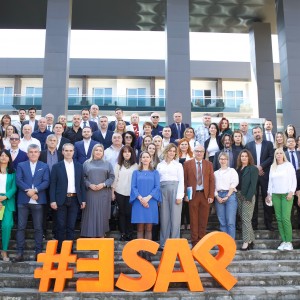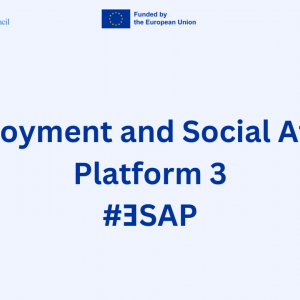Bregu: Let the Roaming Free be the turning point for the regional cooperation - “Borderless Connectivity” benefits everyone

RCC Secretary General Bregu takes part in the Berlin Process Summit hosted by German Chancellor Merkel
Tirana/Berlin/Sarajevo – “We know regional cooperation will prevail on the strength of its ideas and ideals, not on the disputes and the name of documents. We know economies of the region will be competitive when they should be, and collaborative when they must be. We just hope those will be adversarial only when this is inevitable,” said Secretary General of the Regional Cooperation Council (RCC) Majlinda Bregu in introductory section of the EU - Western Balkans Berlin Process Summit, after the opening remarks by the Summit’s host German Chancellor Angela Merkel, and together with European Commission President, Ursula von der Leyen.
The participants of the Summit, held online this year, reaffirmed their commitment towards the implementation of the Common Regional Market (CRM), adopted by the Western Balkans Six leaders at the last Summit in Sofia in November 2020.
“RCC is trying to steer an intense process focused on delivering on the CRM, a gauntlet in favour of a functional approach of cooperation. While there are clear results and significant efforts already invested, we had a hard time advancing the agendas, especially the important freedom of movement ones. All of us worked around the clock to advance the negotiations for the agreement on free movement with ID card in the region. Technically, there was no impediment for this agreement to be endorsed today, and all economies have shown maturity and readiness to support this common cause. This agreement could be another positive milestone, if, in coming months, we manage to agree on removing the remaining political stumbling blocks,” added Bregu.
The Western Balkan Leaders reiterated their commitment to adopting the agreement on free movement of people with ID cards and the agreement on third party citizens as soon as possible and before the next EU Western Balkans summit. Special attention was also devoted to adopting swiftly the agreements on the mutual recognition of academic and professional qualifications, which will facilitate the movement of professionals throughout the Western Balkans.
“I know happy talk is not a mantra in the Balkans. But we all know talk is not walk and the Future is not an agreement at a summit. Future is about people: depopulation, education, business, technology, jobs, digital, connectivity, etc. Last week, we had a historic day for the region, eliminating barriers, borders, and tariffs for mobile phone roaming. It really is a game-changer. We live in a region that is simultaneously shrinking and expanding, growing closer and yet sometimes apart. Let the Roaming Free be the turning point for the regional cooperation. “Borderless Connectivity” benefits everyone,” concluded Bregu.
The participants of the Summit, seventh in a row since German Chancellor initiated it in 2014, adopted the conclusions, which, in addition to reinforcing the commitment on implementation of CRM, set out a set of priorities in various areas including free movement of goods, digital transformation, green agenda, economic and investment plan, response to the COVID-19 pandemic, security, small arms and light weapons, migration, reconciliation, missing persons, Roma integration, youth and youth-related policies, think-tank and civil society, education, science, and research and innovation.
On the future of the Berlin Process, the participants stressed the need for its continuation in order to harness the full potential of improved regional cooperation, also with a view to overcoming the socio-economic consequences of the COVID-19 pandemic.
Full speech by the Secretary General Majlinda Bregu
More info on Common Regional Market
More info on Roaming Free Western Balkans
****
Berlin Summit 2021 is held within the Berlin Process initiative dated back to 2014, aimed at boosting regional cooperation in the Western Balkans. This year it is organised under the German presidency. The Summit gathered region’s and European decision- and opinion-makers, agreeing on the common approach to socio-economic development of the region.


